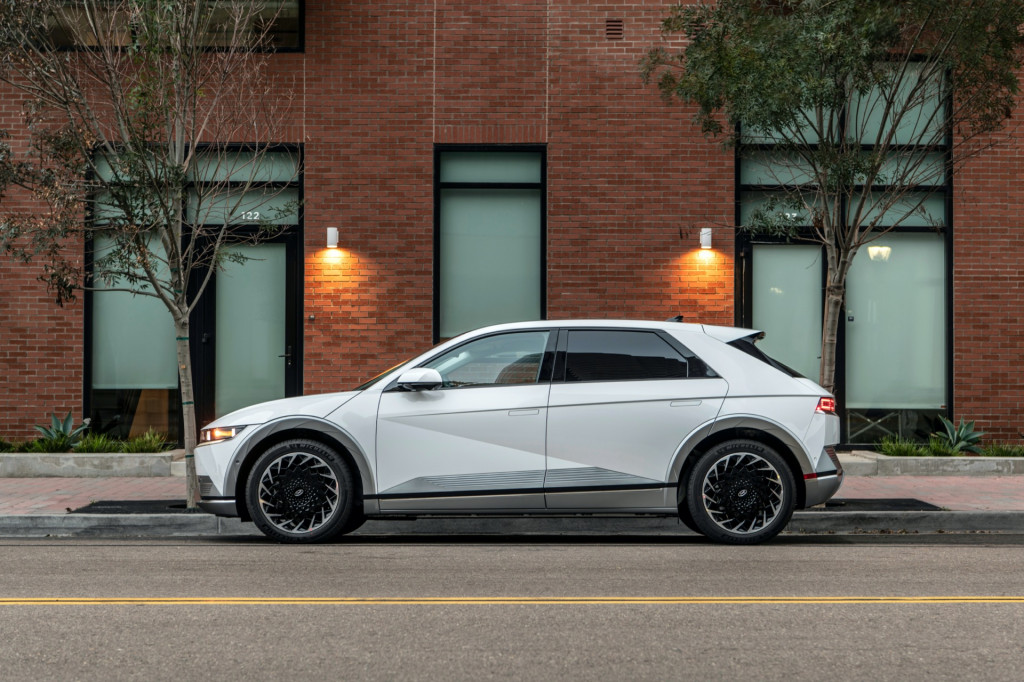Although EV advocates and drivers alike tend to focus on carbon emissions and the effect on climate and the atmosphere, a new Cornell University study highlights that choosing an EV is an investment in better local air quality.
Published in the journal Renewable and Sustainable Energy Reviews, the study looked at the economic and health impacts of changes in air quality in major U.S. metropolitan areas, particularly changes in the level PM2.5, the fine particulate matter produced by vehicle exhaust.

2022 Hyundai Ioniq 5
With lower levels of PM2.5 and other pollutants, the Los Angeles metro area would have 1,163 fewer premature deaths annually, corresponding to $12.61 billion in economic benefit, according to the study. The New York City metro area would have 576 fewer premature deaths and see $6.24 billion in economic benefits, while Chicago would have 276 fewer premature deaths and gain about $3 billion in economic benefits.
A similar effect is predicted for less-dense metro areas. In California's San Joaquin Valley, researchers predict 260 fewer premature deaths annually and a $2.82 billion economic benefit. Dallas-Fort Worth would see 186 fewer premature deaths annually, and gain about $2 billion in economic benefits.
Researchers also noted that EV market share in many U.S. cities beats the national average. While EVs had a 4.5% market share nationwide in 2021, their market share was 22% in San Francisco, 11.9% in L.A., 11.7% in Seattle, and 3.4% in New York City, according to the study. So despite continued charging-infrastructure issues for apartment dwellers and street-parkers, it seems at least some cities are well on their way to maximizing the air-quality benefits of EVs.

2023 BMW i4 eDrive35
It's not just the cars themselves, either. Not only does this pollution get pushed away from population centers, a shift to EVs likely also means less of it—because it spurs investment in renewable sources.
Nationwide, the carbon footprint of EVs continues to get better as more renewable energy generating capacity comes online. That trend will likely continue despite the Supreme Court's ruling that emissions-based powerplant rules fall outside the reach of the EPA.
While that ruling is a blow to agency's regulatory power, the EPA did write incentives for utilities to use cleaner biofuels for electricity used to charge EVs into its broadened biofuels rule.












